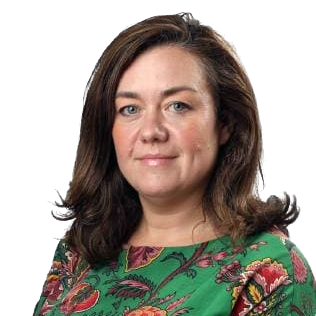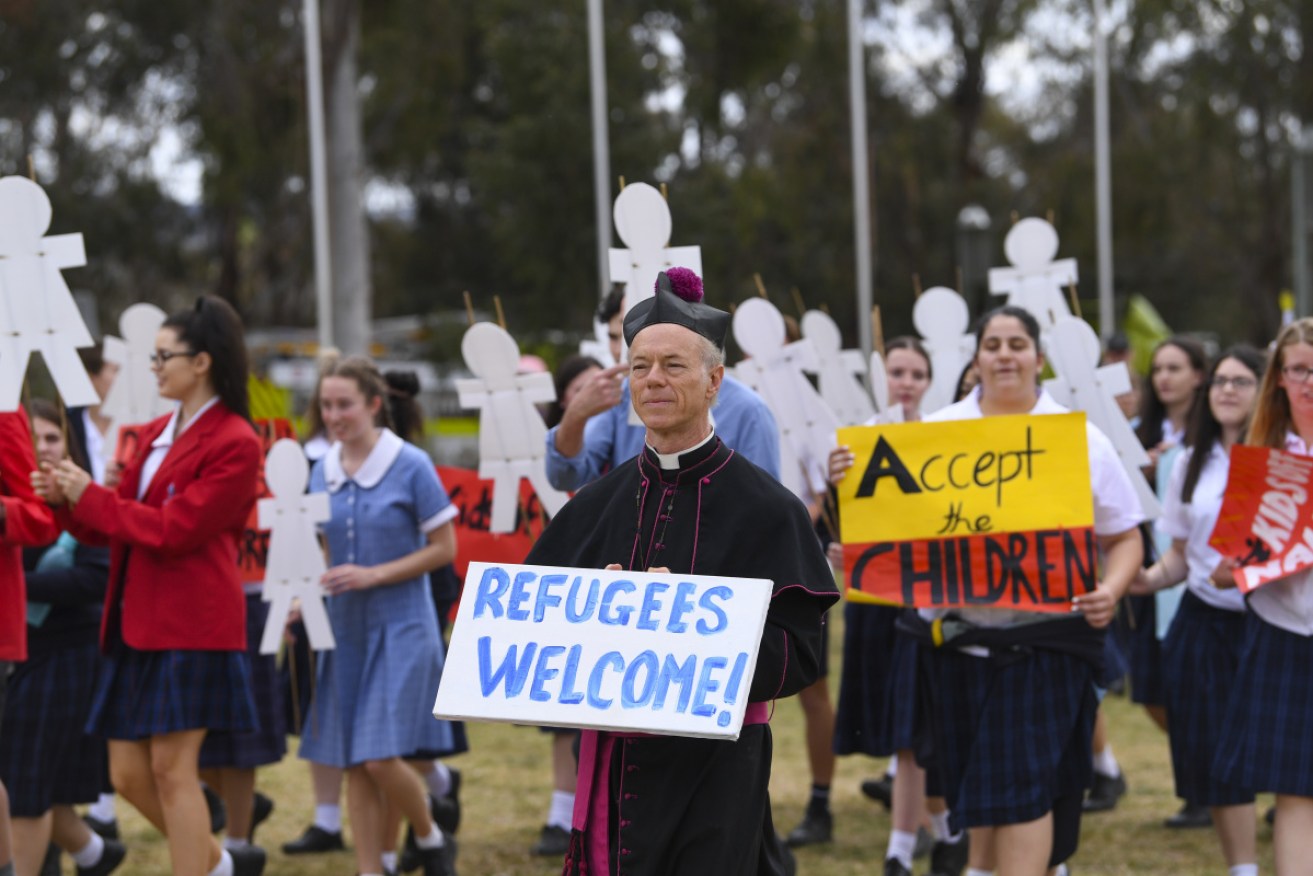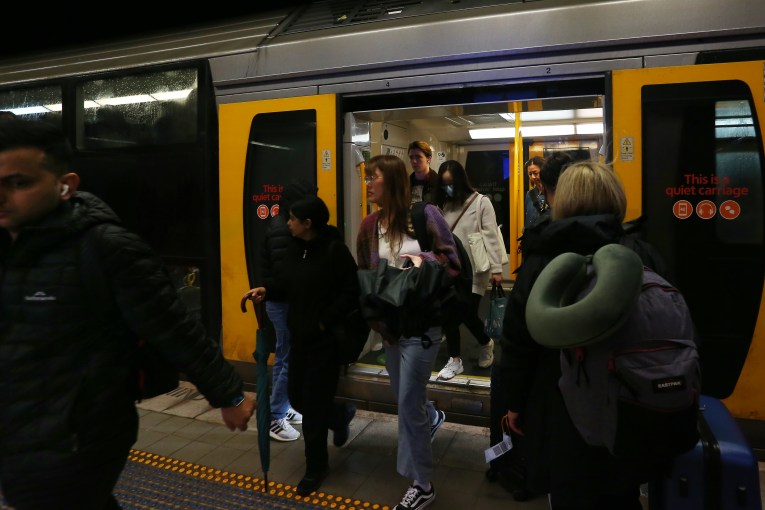Labor to push for increase in refugee numbers


Protestors at a Canberra rally demanding the closure of offshore detention centres. Photo: AAP
Labor leader Bill Shorten is set to announce a future increase to Australia’s refugee intake beyond 27,000 a year at the ALP conference in December.
The new ALP platform is also set to endorse a community-sponsored humanitarian visa program to allow business, unions and community groups to sponsor refugee numbers beyond the annual cap.
But Labor is refusing to say whether it will support a private members’ bill seeking to evacuate all remaining asylum seeker children from Nauru on medical grounds by Christmas.
It argues it needs to see the legislation being pushed by independents.
Existing ALP policy already supports increasing Australia’s humanitarian intake to 27,000 by 2025.
Labor’s immigration spokesman Shayne Neumann has held talks with an ALP working group about increasing that number. However, sources said the party had rejected a push to raise it to 50,000.
“It’s a question of cost for adequate support services and getting that through [Labor’s] expenditure review committee,” a Labor source said.
Two years ago, then prime minister Malcolm Turnbull increased Australia’s annual refugee intake from 13,750 to 19,000.
While boat turnbacks will be debated at the ALP conference, which helps decide policy, there is little appetite to reverse support for the Coalition’s hardline stance.
But in a move that underlines the party’s divisions on the issue, Labor is also preparing to debate a motion at its December conference to end all offshore processing and send refugees to New Zealand, the US or bring them to Australia.
Labor for Refugees is circulating the motion, arguing for an end to offshore detention and the urgent transfer of refugees with mental health issues.
It calls on a Shorten government to “transfer all refugees and people seeking asylum to either New Zealand, the US”, a safe third country that is acceptable to the refugee, or bring them to Australia.
“Any refugee that is suffering physical or mental health problems as a result of their detention should be brought to Australia for care and treatment within the first 100 days of a Labor government,’’ it states.

Cross bench MPs, including Kerryn Phelps (centre), at a Thursday media conference to renew their push to have children removed from Nauru. Photo: AAP
Independent MP Kerryn Phelps and fellow cross benchers Andrew Wilkie, Cathy McGowan and Greens MP Adam Bandt have announced support for new legislation to remove remaining children from Nauru by Christmas, along with asylum seekers who need urgent medical treatment.
In a direct challenge to Labor, Greens Senator Nick McKim said the cross benchers’ bill – which will be debated in Parliament next week – was designed to ensure it could be supported by the opposition.
“There is nothing in this bill that is outside Labor’s policy framework regarding offshore detention, border security or anything else,’’ he said.
“What we need is the Labor Party to step up here. Step up for the kids on Nauru. Step up for the innocent men, women and children – that they put most of them there in the first place – and do the right thing … We genuinely stretch out our hand and invite them to support this bill.”
On Thursday, Dr Phelps stressed that she could not ignore asylum seekers on Nauru who needed medical treatment.
“It is really about getting the right kind of medical and psychological care for people who are suffering … As a doctor, it is not something I can stand by and watch happening,’’ Dr Phelps said.
Fellow independent Andrew Wilkie said the proposed legislation would test the mettle of backbenchers on both sides of politics.
“They stand up and they talk a good talk. They threaten. They bluster. They wave their arms around – and every time the bells go, they sit with their party,’’ Mr Wilkie said.
“Next week will be a wonderful test of backbenchers because if we try to bring this business on we will find out whether they are still party hacks or whether they are willing to act in a power-sharing parliament as people who represent their constituents and think for themselves.”








